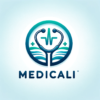In today’s fast-paced world, many individuals are realizing the limitations of conventional medicine when it comes to achieving comprehensive healing. While conventional therapies and medications are undoubtedly effective in treating acute illnesses and managing symptoms, they often fall short when it comes to addressing the root causes of chronic conditions and promoting overall well-being. This is where integrative therapies step in, offering a more holistic approach to healing that incorporates the best of both conventional and complementary medicine.
Integrative therapies aim to treat the whole person – mind, body, and spirit – rather than just focusing on the symptoms or the affected area of the body. This approach recognizes that our physical health is interconnected with our mental and emotional well-being, as well as various external factors such as our environment and social support systems.
One of the key principles of integrative therapies is personalized care. Instead of following a one-size-fits-all approach, these therapies take into account an individual’s unique needs, preferences, and goals. This personalized approach enables healthcare providers to develop treatment plans that are tailored to the individual, helping them achieve optimal health and well-being.
Integrative therapies encompass a wide range of modalities, including acupuncture, chiropractic care, herbal medicine, massage therapy, energy healing, yoga, mindfulness meditation, and more. These therapies have been used for centuries in various traditional healing systems, and their efficacy is now being scientifically validated through research and clinical studies.
Acupuncture, for example, involves the insertion of fine needles into specific points on the body to stimulate the flow of energy, or Qi. This ancient practice, originating from traditional Chinese medicine, has been found to be effective in reducing pain, improving sleep quality, boosting immune function, and promoting overall balance and well-being.
Chiropractic care, on the other hand, focuses on the relationship between the spine and the nervous system. By manipulating the spine, chiropractors aim to restore proper alignment and function, relieving pain and promoting the body’s natural healing process.
Herbal medicine utilizes the therapeutic properties of plants to support and enhance health. Certain herbs have been found to have powerful anti-inflammatory, antioxidant, and immune-boosting effects, making them valuable additions to a comprehensive treatment plan.
Massage therapy, energy healing, yoga, and mindfulness meditation all work to promote relaxation, reduce stress, and enhance overall well-being. These modalities have been shown to have profound effects on mental health, helping individuals manage anxiety, depression, and other emotional concerns.
By integrating these complementary therapies with conventional treatments, healthcare providers can offer a more comprehensive and personalized approach to healing. This not only allows for a more thorough evaluation of the individual’s health but also empowers them to take an active role in their own healing journey.
It’s important to note that integrative therapies should not be seen as replacements for conventional medicine, but rather as complementary tools that can enhance and support conventional treatments. Communication and collaboration between healthcare providers and patients are key in ensuring a safe and effective integrative approach.
If you’re interested in exploring integrative therapies, it’s essential to seek guidance from a qualified healthcare professional who has experience in this field. They can help assess your specific needs and develop a personalized treatment plan that incorporates the most appropriate therapies for your situation.
In conclusion, the power of integrative therapies lies in their ability to address the whole person – mind, body, and spirit – and provide a more comprehensive approach to healing. By combining the best of conventional and complementary medicine, these therapies offer a personalized and holistic approach that can support optimal health and well-being. So, consider exploring the world of integrative therapies and unlock the potential for comprehensive healing.

